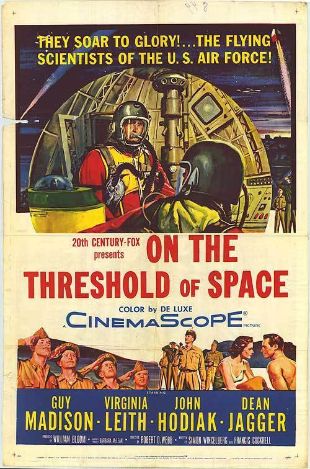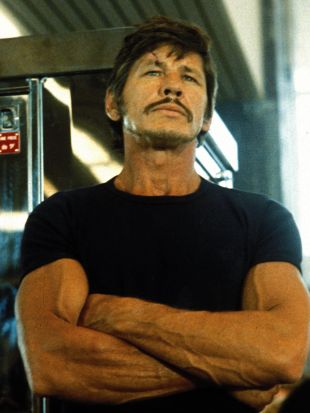Shimon Wincelberg (also sometimes credited as S. Bar-David or Shimon Bar-David) has led a life worthy of a feature film or a novel. Born in Germany in 1925, he was raised in a religious Jewish household. He grew up a top athlete, intending to become a rabbinical student, until the realities of life and death in Hitler's Germany made it impossible to remain in his native country.
Wincelberg arrived in the United States at the end of the 1930s, eventually serving in the Army's 27th Infantry Division in combat intelligence. After the war, he was stationed at a hospital in Japan, where his job was to teach Americanism (i.e., idealized American concepts of justice, governance, and culture) to Japanese civilians. He ended up fascinated by Japanese culture, and started writing professionally in the early '50s, selling his first short story, "The Conqueror," in 1953. That same year, Wincelberg wrote his first screenplay for the airborne war movie Fighter Attack. He later penned On the Threshold of Space (1956), a drama about the high-altitude experiments that were a prelude to the formal space program; but it was his script for a TV drama, The Sea Is Boiling Hot (starring Sessue Hayakawa and Earl Holliman), that had a much more profound impact, and led to his theatrical debut. The story of a Japanese and an American soldier who find themselves stranded together on an island during World War II, it was adapted by Wincelberg for the Broadway stage in 1958 as KatakI (also starring Hayakawa). Although it was a commercial failure and closed quickly, the production was cited as one of the best plays of the 1958-1959 season, and the Broadway credit only raised Wincelberg's profile in television circles. By the end of the '50s, he was writing regularly for such television series as Johnny Staccato (starring John Cassavetes) and The Rebel (starring Nick Adams). During the '60s, he wrote for Combat!, the final season of Naked City, the first season of Star Trek ("Dagger of the Mind," "The Galileo Seven"), and Mannix. He used a variety names for his television writing credits, including S. Bar-David and Shimon Bar-David, occasionally even taking one for the original story or scenario and using Shimon Wincelberg for the teleplay when he had written both.
Starting in the early to mid-'60s, Wincelberg also wrote regularly for Gunsmoke for a decade, though his biggest impact on a single series may have been on Lost in Space. He wrote or co-wrote either the scripts or the original stories and scenarios for the series' unaired pilot ("No Place to Hide") and the first five episodes of the show's first season. The latter, following a very serious and coherent story arc, are generally regarded as the five best shows in the series' entire three-season run. The writer closed out the decade with the screenplay for the European-made, Charles Bronson thriller Cold Sweat (1970), directed by Terence Young. Wincelberg was even busier during the '70s, a decade in which he had a musical (Only Fools Are Sad) produced on Broadway for what became a five-month run in 1971-1972. He also wrote for numerous TV shows, including Owen Marshall: Counselor at Law, Nichols, Longstreet, Hec Ramsey, Bronk, The Magician, Logan's Run, Police Woman, The Paper Chase, and Trapper John, M.D. Wincelberg once explained to an interviewer that television was a means to an end, paying him well enough so he could afford to write books on serious subjects, either alone or with his wife Anita (herself an award-winning writer), often dealing with aspects of Jewish history and culture. In 1998, Wincelberg -- then 78-years-old -- and co-authors Richard Sweren and Ed Zuckerman earned the Edgar award from the Mystery Writers of America for Best Episode in a Television Series for the 1997 Law & Order script "Double Down," in which the district attorney, in an effort to save the life of a kidnapped driver, is tricked into granting immunity to the killer of a police officer and must find a way to prosecute him.
Wincelberg's dramatic work has appeared in the book The Theatre of the Holocaust. Among his and his wife's serious writing collaborations is The Samurai of Vishogrod: The Notebooks of Jacob Marateck (1976), a retelling of the life and adventures of a Jewish man in late 19th and early 20th century Poland and Russia, from the shtetl to service in the Tsar's army in Manchuria and the 1905 Ruso-Japanese War.


